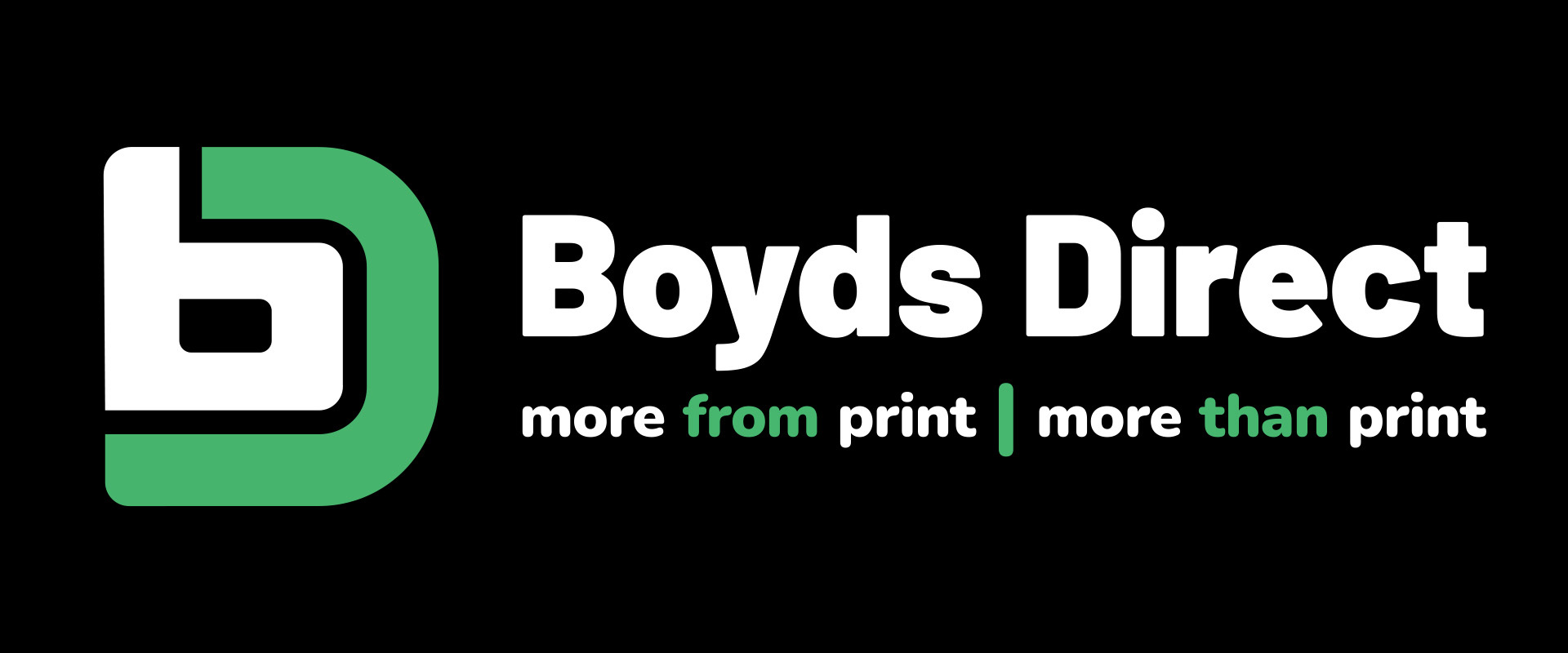30 Tips to Grow Your Business

Reposted from an article from Enterprise League. All rights reserved
Download the article here so you can refer to it throughout the year!
Even if you’ve only just started your entrepreneurial journey, it’s natural to contemplate small business growth. After all, no one opens a business without the intention to scale. Having a growth-mindset has proven to be an instrumental trait for success in entrepreneurship.
This doesn’t mean that all small businesses should become large corporations one day. It just means to maximise the company’s potential and stabilise revenue. The following small business growth tips will give you an idea of how you can do it. It takes action and constant effort to take your business on the next level.
Customers and clients won’t come knocking at your door if you don’t show them the door, and more importantly, what’s behind that door.
Many of these unique small business growth tips look obvious and intuitive, but it’s safe to say our brains often ignore the evident and try to overcomplicate things. So let’s see how many of them you’ve already implemented.
Don’t give up
Don’t quit. You may not be the biggest, most unique, or in-demand product or software, but you have the drive. Stay driven. Utilize technology when you can to automate your workflows, and get yourself a team of mentors. Just don’t quit.
Guillermo Gette, CEO at Workast
Automate with technology
Use technology to your advantage to automate manual or repetitive processes. There are great tools like Zapier and Glide Apps to automate repetitive tasks and help you keep track of everything that is going on in your business.
Jesus Vargas, Founder of LowCode Agency
Customer-focused mindset
My number one tip would be to think about your customers and put yourself in their shoes. Ask yourself questions like what does my product/service do/what problems can it help them solve? You need to have a customer-focused mindset and focus on both attracting and retaining customers.
Jacob Dayan Esq, CEO and Co-founder of Community Tax
Focus on one lead source
My number one tip for business growth is to focus on one lead source/marketing avenue at a time. There are so many ways to grow a business, whether it be through online advertising, direct mail, or partnerships. However, because each lead source is different, you need to dedicate time to learning the ins and outs of each one. If you focus on too many lead sources at once, you won’t be effective at any of them.
Filip Duz, Owner of Giraffe Window Cleaners
Listen to your customer
Proactively approach your existing customers and ask them what current pain-points they experience, what needs they have, which products or services they wish they had. You already did the hardest part – acquiring a loyal customer. There are likely tons of opportunities to up-sell or cross-sell them new products and services that would make them even more in love with your business while helping you grow faster!
Julia Lemberskiy, Co-Founder and Managing Director of JJ Studio
Keep innovating
Never stop innovating should be the constant organizational theme. By staying ahead of the curve and creating a distinctive niche in the marketplace, that alone should generate a competitive advantage while better serving the needs of clients and prospective clients. Effectively marketing one’s unique selling proposition while always under-promising and over-delivering is then expected to produce exponential results.
In other words, an effective organization is always exceeding expectations with a high-touch client experience that generates repeat business and future referrals, thus, minimizing acquisition costs. And at the same time, there should be a keen institutional focus on promoting underlying brand values both internally and externally in order to create a positive culture that fuels continued growth.
William Scott Goldman, Founder of Goldman Law Group
Reflect on your marketing actions
When a business owner comes to me for business growth advice, the first thing I encourage them to do (and share with me) is to reflect on what they’ve already been doing to market the business – sometimes that honest review shines a light on opportunities and weaknesses. Both are areas to improve. From there the business owner can set specific goals.
With that evaluation in tow, my advice is consistent: seek out more ways to educate their audience with their marketing and storytelling. Finding ways to show-not tell and to add value for the audience – without asking for the sale. It may seem counterintuitive to give value for free but it is a winning strategy that I’ve seen pay off many times.
Stephanie Riel, Founder of RielDeal Marketing
Detach yourself from day-to-day workings
When it comes to growing a business you’ve got to allow others to carry some of the load for you, which is hard when you are building your vision. You need to invest in good tools that free up your time, like an automated CRM platform (we use ActiveCampaign), a kick-butt PMS (try Teamwork), and a rock-solid Invoicing/Billing System (QuickBooks or Zoho). Look for cost-effective ways to hire enthusiastic superstars that are self-lead (remote staffing companies can be a good way to find an affordable helper). You also need to have an accountant that aggressively looks out for your business.
The overall goal is to detach yourself from the day-to-day workings of your business so that you can build the free time needed to work ON your business instead of IN your business.
Cindy Moore, Managing Member of Senioridy LLC
Invest in your team
One of the best investments a small business owner can make is in their team because businesses do not scale without an efficient, gritty, multifaceted team. This means investing in educational/professional growth, prioritizing work-life harmony, host team building events, among other things.
When done effectively, this can retain great employees, increase performance, and creates a collective vision around the organization you’re trying to build.
Joel Keylor, CEO of Tresle Inc.
Personalise the customer’s experience
The trend of personalization continues to be a driving force in marketing strategy. Consumers have come to expect personalized experiences across channels, and brands must continue to implement data-driven personalization into their communications strategy at every level. Brands like Amazon, Starbucks, and Netflix get the most from consumer data by creating a customer experience built around the unique personality of each user.
The quest in 2021 continues to be finding innovative ways to merge personalization with segmentation both on a granular level and at scale while addressing a growing concern for consumer privacy. Keeping up with shifts in messaging delivery is another challenge, and machine learning software may be the key to fine-tuning relevancy for targeted personalized B2C campaigns.
Campaigns that hone in on what really matters to your customer base will continue to build that priceless loyalty needed to maintain a competitive edge. To master personalized messaging you have the power to speak to each unique customer with one process aided by automation.
Darren Litt, Co-Founder of Hiya Health
Find out who your ideal client is
To grow your business, find out who you serve, what they need, and how you can be their hero! Sometimes, entrepreneurs get hung up on being the best they can be and doing the work that’s self-satisfying but in order to grow, you must be solving a problem for your customer or client.
You can learn more about your ideal client by doing some soul-searching and studying. I always like to understand my client’s journey. Where did they start? What questions do they have? What roadblocks will they face? That’s where I start to relate to them and I jump in to save the day mode. You must find out where your client’s been, where they want to be, and what you’re going to do to get them there.
The more you can understand your client’s journey, the better you can help them, and the more they’ll want your work.
Liz Illg, CEO of Liz Illg Consulting
Start with organic marketing
My advice to new small business owners is to find what works organically before paying for traffic. Understanding SEO and the keywords that tend to create a higher conversion rate will give a great foundation to build an advertisement campaign around.
Ben McLaughlan, Owner and Founder of Easy Mode Media
Find a mentor
I do invest time and money with mentors. There’s no other way for you to learn best practices but to be mentored directly by experts who can guide you on your skills-building goal. In my case, I continue to consult with my business mentor who’s been so kind to provide me with his opinions on what I do in terms of investing, sales, marketing and customer relations during this pandemic season. So far, I’ve been learning a lot and applying these lessons to my business.
Matt Rostosky, Owner of Cashofferky.com
Learn from your most loyal clientele
Amongst your existing customers or client base, find those who spend the most, complain the least, and refer new business to you. Then phone or email to ask them directly “What is better about us than our competitors?” They’ll quickly tell you your strong points and your advantage – the reason they choose your business.
Use that as a blueprint to craft your message to the market. Maybe you take it to the market at scale – outbound cold contact, or social campaigns. If you have a sales team, give them the cheat-sheet you’ve gained from your customer base, and go forth and multiply!
Ben Hirvi, Founder of Lead Commanders
Collaborate with other businesses
The most important way for small business owners to get exposure and expand is to not shy away from collaborating and working with others. Reach out to your peers in the industry rather than treating them as the enemy— it goes a long way.
Chris Vaughn, CEO, Founder of Saucey
Focus on your vision and goals
A clear and meaningful vision empowers you to overcome the inevitable obstacles that challenge your growth.
Goals are the targets we aim to achieve our vision. Goals must be well defined, measurable, and time-bound. Break each goal into three parts – a goal you must do no matter what, a goal you know you can do, and a challenging goal.
Following this framework lays the path for growth in your business.
Blake Bobit, Founder of Solution Scout
Delegate work
Delegate, delegate, delegate. Don’t do everything yourself. As soon as you can afford it, outsource or hire people to work for you. Your business can’t grow if you do everything yourself. Don’t be the bottleneck.
John Jonas, Founder of Onlinejobs.ph
Keep a rolling budget
Learn to keep a rolling budget and forecast for your business. It is easy to want to be extremely strict and rigid with your budget but, try as you may, you simply cannot expect the climate of your business to align with your predictions so make sure to allocate for both positive and negative fluctuations.
Benjamin Smith, Founder of Disco
Retain existing customers
The ability to retain and expand existing customers helped us as we didn’t have to depend on significant new business during COVID. Our operations could look into data and find customers who we could expand, customers who we could retain, and customers who we could offer free trials for a limited time. This significantly cut our costs on lead generation in times when there were none.
Rishi Kulkarni, Co-Founder and CEO of Revv
Cut costs wherever possible
Always aim to cut your costs when you can. Overspending is one of the main hindrances of small business so make sure to critically analyze your outcome and make it your goal to minimize wherever and whenever possible.
Roy Ferman, Founder and CEO of Seek Capital
Take calculated risks
Choose your risks and make them calculated. No one grows from their comfort zones. All business have risks with their first steps, if you don’t want to get out of your box, you’re not going anywhere. Every success started with these but not all are worth it, not everything brings fortune. So choose what you’re going to venture into. After putting up a goal, plan it out. Risks without calculation are suicide. Don’t rely on your good luck, instead sharpen your eyes to foresee possible roadblocks and plan ahead for their solutions.
Owen, Digital Editor at ODDigital
Build a marketing strategy
The best piece of advice I can give you is to build a solid marketing strategy. Your marketing strategy is like a battle plan. Have you seen any military force going into battle without a plan? I certainly haven´t! So, it makes sense for your business to go into the marketplace with all the ammo it can get and that starts with getting crystal clear on your buyer personas, your potential customers, essentially.
You and your team need to know their average day, pains, desires, where they hang out online, how they make decisions, what can prevent them from making decisions, etc. Market research is vital to the success of your small business, it’s not sexy like the latest marketing tool but without it, your enterprise is dead before even stepping into the battlefield.
Pedro Campos, Founder at Advertongue
Prioritise opportunities
Your growth problems may not be what you think they are. While more top-line growth is important, operations can significantly contribute to profitability. Look at your entire business holistically and determine where the greatest opportunity exists to make an impact. Prioritize the opportunities, then determine the best way to tackle each one. If sales growth is your biggest concern, research unsaturated channels and mediums so you can achieve lower cost amid reduced competition.
Jon Robinson, Founder of Second Eclipse
Have realistic goals
My advice to small business owners looking to grow – make sure your goals for growth are realistic. There is such a thing as growing too quickly! You can’t climb a mountain in an hour, and you won’t grow your business overnight. Instead, work out what growth looks like for you – whether it’s rolling out a new product line, expanding your workforce, or simply increasing revenue – and work backwards to map out mini-targets on the path to your overall goal. This approach helps to keep you focused, enables you to manage the growth sensibly, and prevents your business from accelerating faster than you or your staff can handle.
Tom Dempster, Operations Director at True Boost Digital
Be committed to growth
Growth comes from clarity of direction, truthful outcomes, and taking the action to produce them. The first thing is that to grow, we have to be prepared and committed to growth. Commitment to growth means that there will be uncomfortable as well as happy and excited stages during this period. Clarity and commitment to the outcome is a must. After that is established, then a growth plan must be created, adhered to, and have a strong feedback community and accountability group.
Doug C. Brown, CEO of Business Success Factors
Go online
My advice for growth is to turn your business online without hesitation. You have ridiculous fees to get a boutique online compare to a brick and mortar shop, you can have double-digit year growth during years to come from SEO marketing (personally I aim and reach 30% growth a year for my own business), you are open 24/7 all year long with or without the pandemic situation, and the SEO marketing efforts you will make in 2021 will still serve you as far as 2026 and after, so this is the best long term effort you could make for growing your business.
Nicolas Tranchant, Owner and CEO of Vivalatina Jewelry Brand
Create a financial forecast
Growth is hungry and the fuel that it needs to grow is cash and/or access to capital. Cash is the lifeblood of a business and without it, a business can go under in as quick as 90 days. A business owner who is looking to grow should create a financial forecast that includes a proforma income statement, balance sheet and cash flow forecast. Ensure that it is based on appropriate, not optimistic assumptions. Make use of a professional to help with this if/as needed. From there, secure the cash or access to capital that is needed to support the cash flow shortfalls during growth. Increases in accounts receivable or inventory should be considered investments as they tie up cash.
Tracey Bissett, Chief Financial Fitness Trainer at Bissett Financial Fitness Inc.
Develop profit-improvement strategies
Ensure you have the right strategies in place and focus on the profit centres in your business. Actionable steps need to be taken to increase business revenue and maximise value. Look into your current situation and develop profit-improvement strategies that are tailored to your needs such as:
removing unprofitable products or services and only concentrate on those that are profitable;
review your pricing and adjust to meet demand;
increase your target market though getting new customers can sometimes be more expensive, ensure you manage to still retain the customers you have through innovation, incentives and more;
reduce your overheads by doing stock control and by reviewing where your greatest expenses are and how you can improve that by upgrading, automating or cutting back.
These four practical ideas will help SMEs to achieve business growth.
David Toby, Director at Pathfinder Alliance
Leverage digital marketing
One of the easiest and most efficient ways of reaching a broad audience nowadays is digital marketing. I advise all business owners to make a good marketing budget that will allow them to advertise on multiple platforms. Social media marketing gives very good, fast results as well as Google ads or Youtube advertising. Of course, the type of ads will depend on the nature of a business, but this is the recipe for quick growth.
Another great thing about digital marketing is the option to adjust the audience specifics based on the results you see in real-time. There’s no need to wait for complicated reports when you can access analytics and see all of the metrics at once.
Nick Chernets, CEO of Data for SEO
Go extra miles for your customers
When you listen to your customers and give them more value than they expected, they’ll start talking about your business. They would say “Wow!” if you provide great service by going the extra mile or adding value to their lives in some way.
People love to talk about how they got amazing service from the grocery store or their mechanic. They would definitely share it with their friends. Word of mouth is powerful. When people start talking about your business, you’re getting free exposure and free advertisement. And it’s likely you’re also getting referrals.
Moreover when you’re a small enterprise, producing customized items is one of the key growth channels. Use custom product packaging to your advantage, but you will need to experiment with each product and service line to find out what works best for your business. A lot of times, different regions have different tastes.
So, start by figuring out what your customers would really appreciate. Ask them if they need any improvement in your products or services. Look at what competitors are doing. Look at what businesses in different industries are doing. Then do something and see how your customers react.
Ben Simon, Marketing Manager at Finesse Literary Pass
Conclusion
It’s safe to say many of these small business growth tips revolve around customers. That’s no news, considering that customers are the backbone of every business. You can have the most amazing product in the world, but without no one to buy and use it, it’s all in vain. Nevertheless, growth requires constant action, analysis, and innovation.
© Copyright 2023 Enterprise League. All rights reserved
Download the article here so you can refer to it throughout the year!











